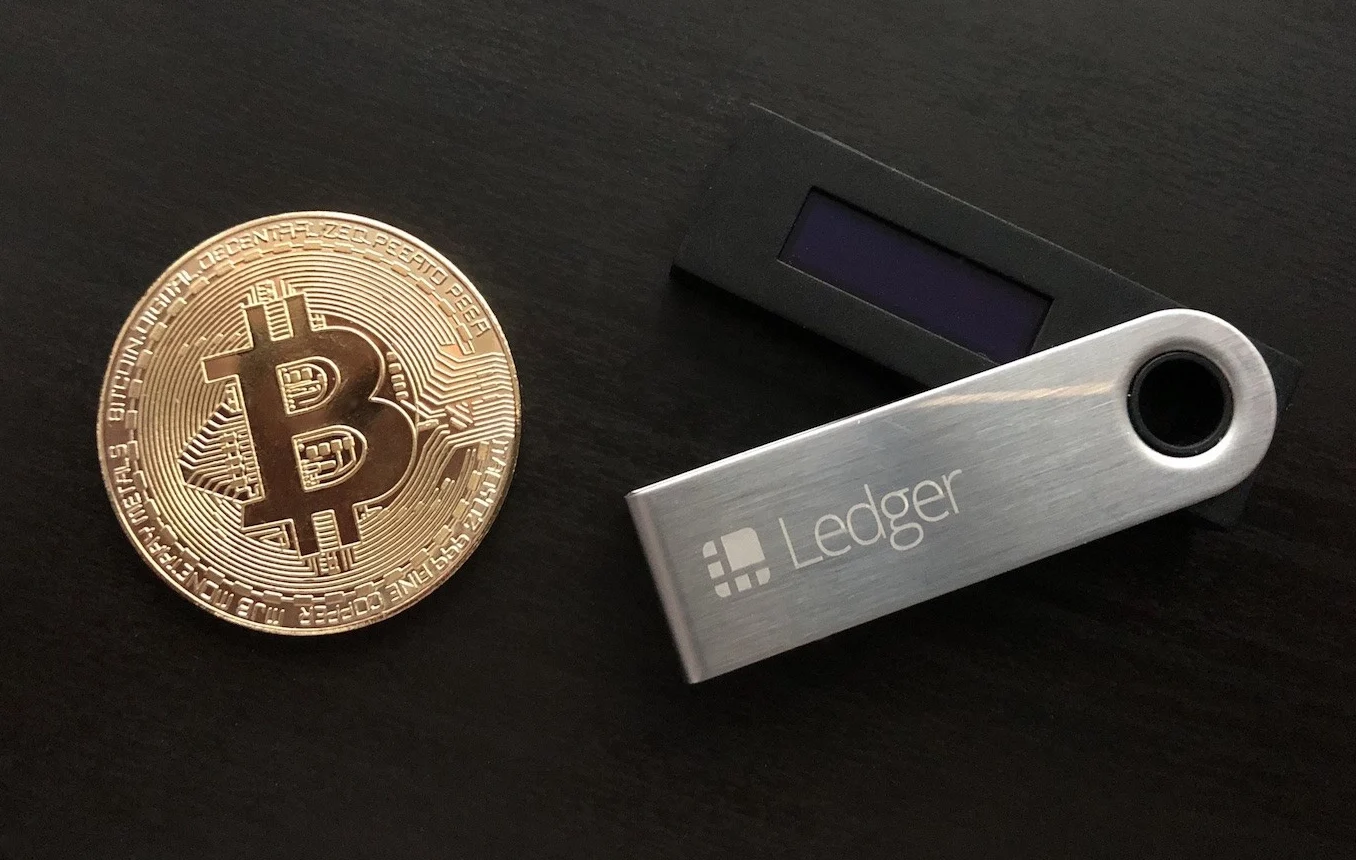In the rapidly evolving cryptocurrency landscape of 2024, securing your Bitcoin investments has never been more critical. With cyber threats increasing and new vulnerabilities emerging daily, finding the best Bitcoin wallets for security 2024 is paramount for both newcomers and experienced investors. Whether you’re holding a small amount for the first time or managing substantial Bitcoin portfolios, choosing the right wallet can mean the difference between financial security and devastating losses.
The cryptocurrency market has witnessed unprecedented growth, with Bitcoin reaching new institutional adoption levels. However, this growth has also attracted malicious actors seeking to exploit security weaknesses. Recent reports indicate that over $3 billion in cryptocurrency was stolen in 2023 alone, making wallet security the top priority for Bitcoin holders worldwide. This comprehensive guide will explore the most secure Bitcoin wallet options available in 2024, examining their features, benefits, and potential drawbacks to help you make an informed decision about protecting your digital assets.
Understanding Bitcoin Wallet Security Fundamentals
Bitcoin wallet security revolves around protecting your private keys – the cryptographic codes that prove ownership of your Bitcoin. Unlike traditional banking, where institutions safeguard your funds, Bitcoin operates on a principle of self-custody, making you entirely responsible for security.
The security landscape has evolved significantly since Bitcoin’s inception. Modern wallets incorporate advanced encryption methods, multi-signature capabilities, and hardware-based security features that weren’t available in earlier years. Understanding these fundamentals helps you appreciate why certain wallets rank among the best options for security in 2024.
When evaluating wallet security, consider factors such as private key storage methods, backup and recovery options, transaction signing processes, and protection against various attack vectors including malware, phishing, and physical theft.
Types of Bitcoin Wallets: Security Comparison

Hardware Wallets: Maximum Security
Hardware wallets represent the gold standard for Bitcoin security in 2024. These physical devices store private keys offline, making them immune to online attacks. Leading manufacturers like Ledger, Trezor, and Coldcard have continuously improved their security features.
The primary advantage of hardware wallets lies in their air-gapped design. Even when connected to compromised computers, the private keys never leave the secure element within the device. This isolation provides protection against keyloggers, screen capture malware, and other digital threats.
Modern hardware wallets feature secure chips, PIN protection, passphrase support, and recovery seed backup systems. Some advanced models include additional security measures like anti-tampering mechanisms and secure screens for transaction verification.
Software Wallets: Balancing Convenience and Security
Software wallets, while more convenient than hardware alternatives, require careful selection to ensure adequate security. Desktop wallets like Electrum and mobile applications such as Blue Wallet offer varying security levels depending on their implementation and features.
The best software wallets for security incorporate features like hierarchical deterministic (HD) key generation, strong encryption, and compatibility with hardware wallet integration. They also provide users with full control over private keys, unlike custodial solutions.
Security considerations for software wallets include the operating system’s security, regular updates, and protection against malware. Using dedicated devices or virtual machines for cryptocurrency operations can significantly enhance software wallet security.
Best Bitcoin Wallets for Security 2024: Detailed Analysis
Ledger Nano X: Premium Hardware Security
The Ledger Nano X continues to lead the hardware wallet market in 2024, offering enhanced security features and improved user experience. This device supports over 5,500 cryptocurrencies, making it versatile for diversified portfolios.
Key security features include a certified secure element (CC EAL5+), Bluetooth connectivity with end-to-end encryption, and a large screen for transaction verification. The device generates and stores private keys offline, ensuring they never become accessible to potential attackers.
The Ledger Live companion app provides a user-friendly interface while maintaining security through hardware-based transaction signing. Recent firmware updates have addressed previous vulnerabilities and added new security enhancements.
Trezor Model T: Open-Source Excellence
Trezor’s flagship Model T stands out for its open-source approach and advanced security features. The transparent development process allows security researchers to audit the code, identifying and fixing potential vulnerabilities quickly.
The device features a color touchscreen, passphrase support, and Shamir Backup for advanced recovery options. Its ARM Cortex-M4 processor and secure bootloader provide robust protection against various attack vectors.
Trezor’s commitment to open-source development has fostered a strong community of security researchers and developers, contributing to continuous security improvements and innovative features.
Coldcard Mk4: Bitcoin-Only Security Focus
The Coldcard Mk4 represents a Bitcoin-only approach to hardware wallet security. This specialized focus allows for deeper security optimizations specifically tailored to Bitcoin’s requirements. Notable security features include a secure element, air-gapped operation capabilities, and advanced multisig support. The device can operate completely offline for maximum security, using microSD cards for transaction data transfer. Coldcard’s emphasis on privacy and security includes features like brick-me PIN, duress wallets, and comprehensive backup options. The Bitcoin-only approach eliminates attack surfaces associated with supporting multiple cryptocurrencies.
Electrum: Proven Software Security
Electrum remains one of the most secure Bitcoin software wallets available in 2024. Its long-standing reputation, active development, and extensive security features make it a preferred choice for experienced users. The wallet offers features like seed phrase backup, multisig support, and hardware wallet integration.
Its lightweight design and server-client architecture provide fast synchronization without compromising security. Electrum’s security model includes transaction fees estimation, replace-by-fee support, and protection against various attack vectors. The wallet’s open-source nature allows for independent security audits and continuous improvement.
Advanced Security Features to Look For
Multi-Signature Technology
Multi-signature (multisig) functionality represents one of the most important security advances in Bitcoin wallet technology. This feature requires multiple signatures to authorise transactions, distributing security risk across multiple keys or devices.
Modern multisig implementations support various configurations, such as 2-of-3 or 3-of-5 setups, allowing users to customise security levels based on their specific needs. This technology proves particularly valuable for organisations, high-net-worth individuals, and anyone seeking enhanced security.
Leading wallets in 2024 offer user-friendly multisig setup processes, making this advanced security feature accessible to non-technical users. The ability to combine different wallet types (hardware and software) in multisig configurations provides additional flexibility and security benefits.
Time-Lock and Inheritance Features
Advanced Bitcoin wallets now incorporate time-lock features, allowing users to create transactions that only become valid after specific time periods. This functionality supports inheritance planning and adds security layers against immediate theft.
Some wallets offer inheritance features that enable trusted parties to access funds after predetermined periods of inactivity. These features address the challenge of Bitcoin inheritance while maintaining security during the owner’s lifetime. The implementation of these advanced features varies among wallet providers, with some offering simple interfaces for basic time-lock functionality and others providing comprehensive estate planning tools.
Mobile Bitcoin Wallet Security in 2024
Blue Wallet: Mobile Security Excellence
Blue Wallet has emerged as a leading mobile Bitcoin wallet, offering strong security features while maintaining user-friendly operation. The wallet supports both Lightning Network and on-chain transactions, providing flexibility for different use cases. Security features include hierarchical deterministic key generation, local private key storage, and compatibility with hardware wallet integration.
The wallet’s open-source nature allows for community auditing and continuous security improvements. Blue Wallet’s approach to mobile security includes biometric authentication, encryption, and careful handling of sensitive data. The wallet also provides users with full control over their private keys, avoiding custodial risks.
Samourai Wallet: Privacy-Focused Security
Samourai Wallet focuses on Bitcoin privacy and security, offering advanced features for users requiring enhanced transaction privacy. The wallet incorporates features like CoinJoin, Tor integration, and stealth mode operation.
Security implementations include BIP-compliant key derivation, local transaction processing, and protection against various blockchain analysis techniques. The wallet’s privacy features complement its security measures, providing comprehensive protection. Samourai’s development team maintains an active focus on privacy research and security enhancement, regularly updating the wallet to address emerging threats and implement new protective measures.
Enterprise and Institutional Bitcoin Wallet Solutions
Multi-User Security Management
Enterprise Bitcoin wallet solutions in 2024 address the unique security challenges faced by institutions managing cryptocurrency assets. These solutions typically incorporate advanced access controls, audit trails, and compliance features. Leading enterprise solutions offer role-based access management, allowing organizations to implement segregation of duties and multi-level approval processes for transactions.
These features help prevent internal fraud while maintaining operational efficiency. The integration of enterprise wallets with existing security infrastructure, including single sign-on systems and hardware security modules, provides comprehensive protection suitable for institutional requirements.
Compliance and Regulatory Considerations
Institutional Bitcoin wallet providers have enhanced their compliance features to meet evolving regulatory requirements. These improvements include transaction monitoring, reporting capabilities, and integration with compliance management systems.
The implementation of anti-money laundering (AML) and know-your-customer (KYC) features within wallet solutions helps institutions maintain regulatory compliance while managing Bitcoin assets. These features often include automated suspicious activity reporting and audit trail generation. Regulatory developments in 2024 have influenced enterprise wallet design, with providers focusing on features that support compliance with emerging cryptocurrency regulations across different jurisdictions.
Security Best Practices for Bitcoin Wallet Users
Backup and Recovery Strategies
Implementing robust backup and recovery strategies represents a critical aspect of Bitcoin wallet security. The seed phrase backup system used by modern wallets requires careful handling and secure storage to prevent loss and unauthorized access.
Best practices for seed phrase storage include using metal backup devices for fire and water resistance, distributing backups across multiple secure locations, and avoiding digital storage methods that could be compromised by hackers. Advanced users may consider implementing Shamir’s Secret Sharing scheme for seed phrase backup, which splits the recovery information into multiple parts, requiring a threshold number of parts for wallet recovery.
Regular Security Updates and Maintenance
Maintaining Bitcoin wallet security requires ongoing attention to updates and security maintenance. Wallet software updates often include important security fixes and enhancements that protect against newly discovered vulnerabilities.
Users should establish regular update schedules for both wallet software and associated applications, including operating systems and antivirus software. Enabling automatic updates for critical security components helps ensure timely protection against threats. Hardware wallet users should also monitor firmware updates from manufacturers, as these updates often address security vulnerabilities and add new protective features.
Physical Security Considerations
Physical security plays a crucial role in overall Bitcoin wallet protection, particularly for hardware wallets and backup materials. Secure storage solutions should protect against theft, environmental damage, and unauthorized access. Considerations for physical security include using safes or safety deposit boxes for hardware wallets and backup materials, implementing access controls for storage locations, and maintaining inventory records for security devices. Users should also consider the security implications of travel with hardware wallets, including potential border searches and the need for decoy wallets or plausible deniability features.
Common Security Mistakes to Avoid

Private Key Management Errors
Many Bitcoin security breaches result from poor private key management practices. Common mistakes include storing private keys in unencrypted digital formats, sharing keys through insecure communication channels, and failing to properly secure backup materials.
Understanding the importance of private key secrecy and implementing proper handling procedures prevents most security incidents. Users should never photograph private keys, store them in email or cloud services, or share them with third parties. The use of brain wallets or user-generated seed phrases often results in weak entropy and predictable keys. Users should rely on wallet-generated randomness for key creation rather than attempting to create their own.
Phishing and Social Engineering Threats
Phishing attacks targeting Bitcoin wallet users have become increasingly sophisticated in 2024. These attacks often impersonate legitimate wallet providers or exchanges to steal private keys or seed phrases. Recognition of phishing attempts requires understanding common tactics, including fake websites, fraudulent support communications, and deceptive software downloads. Users should always verify website URLs and download software only from official sources. Social engineering attacks may target wallet users through various communication channels, attempting to trick users into revealing sensitive information or installing malicious software. Awareness of these tactics helps users maintain security.
The Future of Bitcoin Wallet Security
Emerging Technologies and Trends
The Bitcoin wallet security landscape continues to evolve with the emergence of new technologies and innovative approaches. Key developments in 2024 include the introduction of enhanced hardware security modules, improved encryption methods, and the implementation of new authentication mechanisms.
Biometric authentication integration is becoming more sophisticated, with some wallets incorporating multiple biometric factors for enhanced security. These implementations balance convenience with security, providing user-friendly access while maintaining protection.
The integration of secure multi-party computation (SMPC) and threshold signatures represents another advancement in wallet security technology. These cryptographic techniques enable more flexible and secure multi-signature implementations.
Quantum Resistance Preparations
The potential threat of quantum computing to Bitcoin security has prompted research into quantum-resistant cryptographic methods. While current quantum computers don’t pose immediate threats, wallet providers are beginning to implement quantum-resistant features.
Post-quantum cryptography research is influencing wallet development, with some providers exploring hybrid approaches that maintain compatibility with current Bitcoin protocols while preparing for future quantum threats. The timeline for the realisation of quantum threats remains uncertain, but proactive preparation by wallet providers helps ensure long-term security for Bitcoin holdings.
Conclusion
Selecting the best Bitcoin wallets for security 2024 requires careful consideration of your specific needs, technical expertise, and risk tolerance. The cryptocurrency security landscape continues to evolve, with new threats emerging alongside innovative protective technologies.
Hardware wallets remain the gold standard for Bitcoin security, offering unparalleled protection against online threats. Software wallets provide convenience and accessibility while maintaining reasonable security for smaller amounts and daily use. The key lies in understanding your requirements and implementing appropriate security measures.

